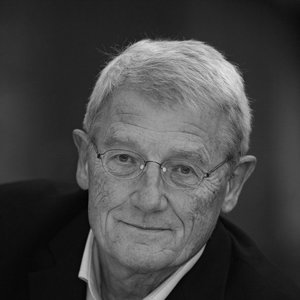 |
Gerd Achenbach (Germany) – Professor of Philosophy, founder of the International Society of Philosophical Practice (IGPP), member of the Scientific Advisory Council of the Society for the Study and Advancement of Applied Philosophy (Germany), as well as the founder and permanent leader of a cluster of university courses in philosophical practice at the University of Vienna (Austria). Gerd Achenbach is the first philosopher who inputs the concept of “philosophical practice” into scientific circulation; in addition, he is the most authoritative representative of such a trend of philosophical practice as “philosophical counseling.” His ideas are summarized in a variety of books and articles on this subject. |
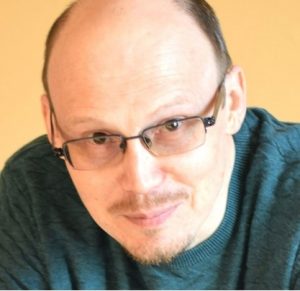 |
Vladimir Klimentyev (Russia) – Master of Philosophy, teacher of the history of philosophy, Organizer of the educational project “PHILOSOPHY & I – School of Thought”, facilitator of the workshops “Constructive Conversation”, “AntiSophist”, director of the autonomous noncommertial organization “Communication – a place of meaning” (St. Petersburg).
Seminar on the history of philosophy as a format for philosophical practice (workshop) Since the summer of 2013, webinars have been held almost daily on the online course on the history of philosophy, which I teach. Now a rare webinar lasts less than 2-3 hours. This is a small life several times a week. What do we live in these hours? Is something happening here? Does it affect our daily lives? Yes! Discussing the read source, we learn not only to be incognizant, to make mistakes. The mistake becomes fruitful in joint thinking and leads to real bliss of discovery, which is always the result of joint effort. Many participants noted a side therapeutic effect of these meetings. Knowledge of texts, thoughts of philosophers, development of one’s thinking, connectedness of concepts, clarification of the picture of the world – this becomes, as it were, a necessary concomitant achievement of the ongoing main process – the joy of joint thinking and a sense of being. At the workshop, we will try to recreate that atmosphere and conditions of our webinars by reading and discussing a fragment of a philosophical work (most likely Antiquity). |
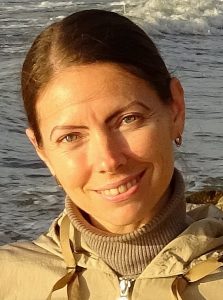 |
Lyudmila Sirotkina (Russia) – PhD, Immanuel Kant Baltic Federal University (Kaliningrad); author and leader of the contest “Logic. Thinking. Creativity”, logic Olympiads for schoolchildren, author of the book “Logical principles for children and adults”
Logical culture of thinking: conditions and development strategies. (Direction: “Philosophy for Children”) (Presentation) According to the research of J. Piaget, by the age of 15-16, thinking reaches the level of formal (propositional) operations. Is logical normativity as a criterion of logical culture and a condition for effective discursiveness an attribute of natural thinking? Empirical studies show that in the regime of normative logic it functions extremely rarely, revealing all the effects of “childish” thinking (M. A. Kholodnaya). What is the reason for the non-actualization of the resources of individual intelligence? The specifics of the leading channels of translation of models of individual rationality in the context of informal education leads to repeated reproduction of logical errors and the consolidation of persistent stereotypes of logically incorrect development of mental procedures. What are the conditions and strategies for the development of a culture of thinking in terms of procedural normativeness? The presentation will discuss the principles of sensitivity, reflexivity, and qualitativity as the basic foundations for constructing educational influences, as well as presenting the experience of the early formation of logical structures. |
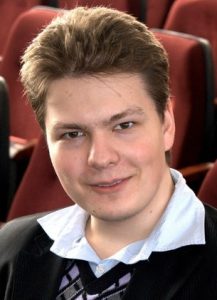 |
Oleg Valuev (Russia) – Junior Researcher, School of the Anthropology of the Future, Lecturer in Psychology, Russian Presidential Academy of National Economy and Public Administration (RANEPA) (Moscow), counseling psychologist
The philosophy of creativity as a personal practice of the freedom to be, do and create (Lecture) In my life and professional activity, I have always understood philosophy as an eschatological art of human freedom, which opens up new forces and possibilities of the spirit. Her need, as well as the “need for myself” (according to MK K. Mamardashvili), I feel in pedagogy, psychology, psychotherapy, art and life. The philosophical foundation of my personal practice is associated with a creative synthesis of the philosophy of personalism and the philosophy of free spirit. At the lecture, in contrast to the intellectual understanding of creativity as a cultural product, an existential understanding will be “defended” – as the liberation of the spirit in the transformation of the world, the change of life (N.A. Berdyaev). Freedom is not that which you can, but that which you cannot. In this sense, real freedom is revealed as the freedom of creativity – in the synthesizing interaction of existential and essential freedom, freedom to do and freedom to be. It will be shown that the practice of freedom reveals the spirit in the triangulation of meaning, possibility and impossibility, therefore the self-knowledge of the philosopher is the creative basis of the philosophy of knowledge. The loss of meaning, leading according to V. Frankl to an existential vacuum, is the loss of freedom, and, therefore, the loss of the spiritual foundations of life, the loss of oneself. The philosophy of creativity as a personal practice of freedom allows you to correlate different types of freedoms with different types of creativity, revealing new meanings as connections and relationships between the possibilities and impossibilities of your life. Surreal ballad as a dialogue of fate and freedom (workshop) The search for answers to significant questions of human life sometimes leads to intellectual deadlocks, creating various difficulties in our life’s journey. This sometimes happens due to the inability to organize a lively dialogue between your destiny and freedom, a dialogue that allows you to find yourself at a level of greater sincerity, complexity and concentration. In one fantastic work by Robert Sheckley, it says that “to correctly pose the question, you need to know half the answer.” Workshop participants can bring with them or pose any significant life question that excites them in the past, present, future or eternal, and get an answer to it, which they will be ready for at that point in time. The cultural practice of self-awareness proposed for this can be used both in group and in individual work formats. It is based on the philosophy of personalism of N. A. Berdyaev, the philosophy of art M. M. Bakhtin, the existential psychology of R. May, the psychology of art L.S. Vygotsky and the psychology of the creative act of V.P. Zinchenko. So, we turn to the synthesized art – the animated film “Destino” (2003) – the famous joint project of Salvador Dali and Walt Disney. This practice includes watching and discussing the cartoon, reflective writing and free drawing, the semantic performance of the ballad of one’s fate and freedom. It will be a “motional dialogue” of self-knowledge, allowing you to find a new self. Existential motto as a philosophical and psychological practice of resolving personal problems and life difficulties (workshop) In difficult situations of life and activity, a person needs warm words that concentrate positive ideas, constructive thoughts, motivating and inspiring for new actions. As such expressions, various wishes of family and friends, beautiful philosophical sayings and aphorisms, artistic quotes, numerous advertising slogans, military and political slogans, meditative and religious texts are often used. Personal rules of conduct, professional credos, family and generic inscriptions and mottos are drawn up from them. In contrast to them, the existential motto allows you to give new strength and meaning to change life and personal circumstances for a certain period of time. The workshop is supposed to demonstrate the application of the futurological practice of writing to resolve a number of life issues and tasks facing a person. The methodological basis of this practice is the existential approach in psychology and psychotherapy (R. May, L. Binswanger), existential anthropology (N.A. Berdyaev, A. Camus, G.S. Pomerants) and cultural-historical psychology (L.S. Vygotsky, P.Y. Galperin, V.P. Zinchenko, A.G. Asmolov). This is work with oneself, turning a person to his own life-world, giving deep meaningful answers to personal questions in a symbolic form. The practice of creating an existential motto always refers to the future, with which it is proposed to work. Cultural and historical practices of life during a pandemic: overcoming the apocalyptic time (lecture) The year that mankind spent in a situation of forced self-isolation and massive restrictions, which caused numerous overcoming in society and culture, was completely shrouded in the themes and ways of life and death hovering over all of us. This forces us to speak of a catastrophic and even apocalyptic time (the latter is considered in the logic of F.M. Dostoevsky) that found reflection in the concept of “chronological neurosis”, i.e. neurosis of loss of time connectivity, timelessness and the subsequent disintegration of the vital chronotope (A.A. Ukhtomsky, M.M. Bakhtin, V.P. Zinchenko). The coronavirus pandemic is understood by me in the logic of sociosystem and existential approaches as a trinity of epidemic, infodemic and noodemic. This enables a holistic and multifaceted consideration of our difficult time and its mental effects. This is not the first time humanity has faced such phenomena and has historically accumulated a certain set of tools and practices for working with society and personal life in such times. These practices, considered to overcome the apocalyptic time in working with oneself and other people, have both a psychological and a philosophical and existential structure. About them we can talk in more detail in the context of awareness of the transitions between survival, revitalization, life, experience and revival. |
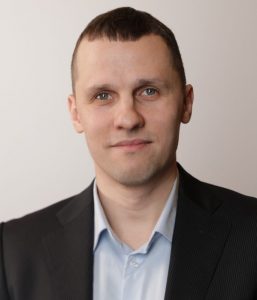 |
Nikolay Khmyrov (Russia) – an independent researcher, developer and host of assessment and training programs in Russian and Western companies, an expert on the assessment of the federal project “Russia – a country of opportunities” (“Leaders of Russia”, “Masters of Hospitality”, “Science”), practical philosopher, methodologist and leader of projects for the assessment and development of thinking (St. Petersburg).
“Hermeneutics of the Subject” on the hermeneutics of the client (Panel discussion) Can Foucault’s famous lecture series Hermeneutics of the Subject (1982) help us understand who the client of philosophical counseling is? How relevant is this answer: “the client of philosophical counseling is the one who “takes care of himself”? We invite you to discuss! Intended Topics: three types of client path in Foucault’s Hermeneutics of the Subject; answers from different eras what do we understand today about PC clients? Are all people potential clients of PC? is it possible to “prepare” clients for philosophical practice? the client in the digital post-Covid era: the fourth way? Moderator: Nikolay Khmyrov Participants: Artur Krasyukov, Yulia Monina, Andrey Sizov Does business need philosophical practice? Understanding the corporate experience (Presentation) Maria Dmitrieva and Nikolai Khmyrov will talk about the fate of two corporate programs in philosophical practice: Think Broadly and Steadfast Mind. Let’s discuss the following questions: Where did the idea to offer philosophy for business come from? To what extent is the business really interested in executives thinking more broadly? Why does business need a philosophy? Can a philosophy be necessary for an employee, but not unnecessary and even harmful for a company? And vice versa? |
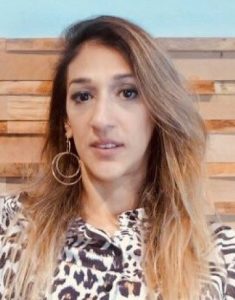 |
Riella Morhayim (Turkey) – Boğaziçi University-Philosophy (BA), IDC Herzliya – Organizational Psychology (MA) & Tel Aviv University-Philosophy (MA). Since 2008, working on Philosophical Counseling and Practices, participated in many training and conferences in Turkey, the Netherlands, Israel, France, and Switzerland. In 2015, her article was published in the book “Women in Philosophical Counseling: The Anima of Thought in Action”, published by Lexington Publishing House, where 18 women philosophers from 12 different countries took part. Under the name of “Unlocking Practices”, she practices philosophy as personal development and problem-solving technique. She offers Philosophical Counseling services to individuals, couples, groups, institutions, and organizations in 3 languages: English, Turkish and Hebrew. Also, she gives training on Philosophical Counseling and Philosophy with Children, as well as facilitates Philosophical Practice workshops with children, educators, parents and employees and managers in different fields.
Philosophical Counseling On Anxiety (Workshop) Experiencing Anxiety? Or do you need to deepen and develop the concept of anxiety? So, how about joining our group philosophical counseling session? Philosophical Counseling enables participants to examine the questions and problems; which they associate with the concept of anxiety, in a peaceful, safe, and respectful environment. By using the philosophy itself as a method, it offers guidance to the participants to benefit from the philosophical wisdom in their daily lives. The main aim of this Philosophical Counseling Group is to facilitate the participants to discover the causes of the anxiety and the problems -difficulties-associated with this concept and find the most suitable and creative solutions for them. It is not a traditional philosophy lesson or group therapy. It is creative, fun, and inspiring, as it offers tools to apply philosophical competencies and techniques to everyday life. It is an authentic process of healing and development. It has been structured and enriched by using ancient and contemporary methods; as well as by taking into account the needs of each participant one by one and as a group. |
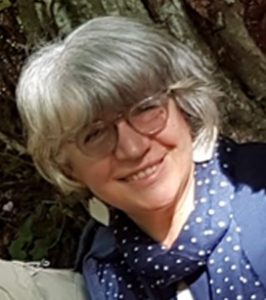 |
Arcangela Miceli (Italy) – Professor of Ludosophy and Philosophical Practice in Agape Philosophical Advice/ Master Roma Tre University. Founding member and chairwoma of the A.L.I. (Italian Ludosophic Association). From 2004 – Professor of applied Philosophy, and the Philosophy of imagination at School of Philosophical Counselling (Rome).
The philosophical game, inductive-ludosophical method and its application (Poster presentation) Ludosophy is a neologism (Latin-ludus, game and Greek-sophia, knowledge), translated as “learn to reflect by playing”. “Knowing, knowing how, looking for, asking questions, understanding in a playful and joyous way, through games and reflection exercises, starting from myths, poetic, artistic and philosophical suggestions. From that imagine patrimony which investigative curiosity has about oneself . . ., each individual has at his disposal even if he is not a philosopher…” We say that a philosophical game is the act, the action and the acting out of that philosophical reflection at the practice of “ludosophical” inductive method. In this practice its tasks that of: a) arousing curiosity, amazement b) promoting creativity, listening carefully, authentic communication; c) activating an interior dialogue (relationship with oneself), a, dialogic interaction (relationship with another person) and the review of one’s own vision of the world (the community). This is how the self-exploration and the self-investigation process opens up to the experience of the other person, the group and the horizon of the world. Those interested in this “practice” can be philosophers, philosophical counsellors, promoters, teachers and psychologists motivated to put the “ludosophic” practice into effect in a wide range of environments: schools, training institutes, prisons, centers for the elderly and the disabled, etc. Nevertheless, those who are must suitable are philosophical counsellors trained during the at Roma Tre University. Examples of philosophical games carried out in various contexts and sectors will be shown during the poster presentation. |
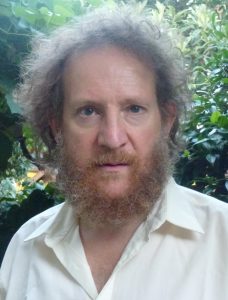 |
Neri Pollastri (Italy). He is involved in philosophical practice since 1998 and he is practitioner as Philosophical Consultant since 2000, both privately and in mental health centres of Public Administration. On the matter he published Il pensiero e la vita (2004, 2th ed. 2020), Consulente filosofico cercasi (2007, 2th ed. 2020) L’uomo è ciò che pensa (2008, with D. Miccione) and Il filosofo in azienda (2010, with P. Cervari), and about forty articles (some available in English). He translated in Italian Peter Raabe’s Philosophical Counseling: Theory and Practice and coordinated a “Philosophical Practice” books series, collecting works in Italian of Achenbach, Lahav, Raabe, Schuster and many others. In 2002 he founded Phronesis, the Italian Association for Philosophical Consultation, of which he was President for six years and director of its review for fifteen years. He has taught philosophical consultation in several Italian universities, he was speaker at the ICPP in Copenhagen, Seville, Leusden, and he was one of the organisers of the IX ICPP in Carloforte. Presently he leads the Istituto di Consulenza Filosofica (www.istitutodiconsulenzafilosofica.it) and has its Professional Course for Philosophical Consultation, according Achenbach’s concept of Philosophische Praxis, different by the current idea of philosophical counseling.
Knowing, to be free not to heal (Lecture) During the twenty-three years in which I followed the international scene of Philosophical Practice, I was always observing a contrast between two very different kinds of philosophical practices: those who aim to help guest (counselee) and cares about her/his well-being; those who aim in a cooperative searching of knowledge and a cognitive gain (both for the guest and the philosopher). Such a difference shows the distance between German “Philosophische Praxis”, as defined by Gerd Achenbach and his followers, and American-Hispanic “philosophical counseling”, developed in several different ways in many parts of the world. It also corresponds to Achenbach’s distinction between “an alternative psychotherapy” and “an alternative to psychotherapy”. Anyway, it has yet no sufficiently recognized and evaluated in its important consequences, both in theory and in practice. In particular, the lack of an explicit recognition of this difference is producing misunderstanding in international community regarding: the identity of the practice; the ways of carrying it out; how judging its success or failure; its efficacy; the importance in it of psychological tools; last but not least, the same sense of the concept of “practice” in its practicing. My contribute would offer some elements for reflecting on the theme, and even to appeal for a proposal to the international community. |
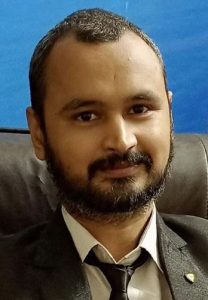 |
Abhishek Shukla (India) – M.Phil, University of Delhi, a Junior Research Fellow at Department of Philosophy; an active member of philosophical practitioners’ group in Delhi; engaged with various voluntary organizations to promote philosophical practice in India.
An Inquiry into The Nature of Philosophy with Special Reference to The Children’s Ability to Think Philosophically (Presentation) Philosophical inquiry with children faces criticism that children lack the cognitive development necessary for higher-order thinking. This definition of philosophy as higher-order thinking put forward by opponents of philosophical inquiry with children is not only tenable but a good definition of philosophy. Philosophy as a higher discipline deals with problems with cannot be resolved through first-order thinking. In other words, philosophical problems exist in the space between empirical problems and logico-mathematical problems; neither can be solved through empirical methods nor logical-mathematical deduction. Philosophical questions belong to the domain where nothing can be known with certainty; therefore, they are open to disagreement, but philosophical disagreements are different from disagreement in first-order disciplines; they can go at the second-order level. Ayer (1936) gives a good example of such a disagreement that idealists and realists do not disagree on the nature of reality only, but they also agree on how to prove or disprove their claims. Gareth Mathew (1980), based on his experience of philosophical inquiry with children, claims that young children naturally ask philosophical questions, but merely asking philosophical questions cannot be said to be a philosophical inquiry unless there is sufficient progress. This leads to the question of progress in philosophy. The concept of progress in philosophical inquiry should be different from first-order disciplines because philosophical questions are open to disagreement and they cannot have a definite answer. There can be progress in philosophical inquiry, even if it is accepted that philosophy as a discipline does not make any progress. |
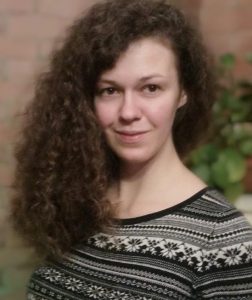 |
Taisiya Kondratyeva (Russia) – philosophical practitioner, critical thinking coach. Currently studying in the Master program “Philosophical counseling and consultancy” in the West University of Timisoara (Romania), has previous background in “Philosophical counseling of Oscar Brenifier” and in “Logotherapy and existential analysis”. Conducting individual philosophical consultations and workshops online with clients from Russia, Europe and Asia; hold series of offline critical thinking workshops for primary school teachers in AFFRA School in Trivandrum (Kerala, India); workshops for actors – implementing critical thinking in art; conducting are search on the impact of regular practice of philosophical exercises on a person’s life.
Educational programs in philosophical practice. What is problematic about them? (Discussion) During the presentation and subsequent discussion, I will share with you the problems that I discovered when I studied international educational programs in philosophical counseling and personally trained in some of them. – What is problematic about existing FP educational programs? – Should we modify them, leave them as they are, create others? – What elements are integral to an FP program? – What do we consider “practice”? A counseling session, a master class, or a philosophical analysis of a text? I invite you to discuss these questions and share your vision! Space for worldwide collaboration: The Philosophical Practice Hub Project Philosophical Practice (PP), a rapidly growing field of professional activity, is internally diverse and currently highly fragmented. We believe the field would benefit from having an online place (equidistant from any particular PP method) offering a well-structured, user-friendly, dynamic overview/ map of the field, its subareas, main approaches, their similarities and differences. To meet this need, a group of practitioners (inspired by a workshop at ICPP2020) is launching the Philosophical Practice Hub Project (website) to serve a double purpose of (1) providing conveniently navigable, comparable information to aspiring and experienced PP practitioners, as well as to the prospective clients, and (2) fertilizing collaboration between practitioners and schools of PP. At ICPP2021 the PPHP team will be presenting the project, the prototype of the website and our current bird’s-eye view of the industry, inviting comments, suggestions and a number of forms of contribution to the project by members of the PP professional community. Key speakers: André L. Santos de Almeida (Brazil) Taisiya Kondratyeva (Russia) Alexandra Konoplyanik (Russia/UK) Agatha (Lan-Fang) Liu (Taiwan / Great Britain) Aleksa Babic (Serbia) |
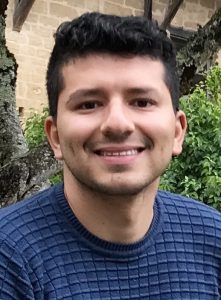 |
Fabio Andrés Galvis Gómez (Colombia / Russia) – PhD student at the Ural Federal University (Ekaterinburg, Russia), MA in Humanities, MA in Political Philosophy, Junior Researcher at the “Laboratory of Comparative Studies of Tolerance” (Ural Federal University).
The promotion of critical thinking in education through architectural design. A critical approach to Lefebvre’s production of the social space The conference will expose Lefebvre’s production of the social space concept through the prism of the Swedish Vittra schools’ experiences. My aim is to show the philosophical theory of Lefebvre as a way to read the architecture and its interaction with us in the educational context. It will be studied that the space preexists us in certain form and function; however, it can be reconstructed thanks to the interaction with the actants. Such reconstruction will be considered to show how transversal knowledge, new teaching strategies, individualization and humanization of the relationship among teachers and students and more interesting learning processes, are part of a structure that has as a cornerstone, the appropriate production of the educational space. Thus, the conference concludes demonstrating that the subject and its educational processes should be thought from temporal and spatial categories. |
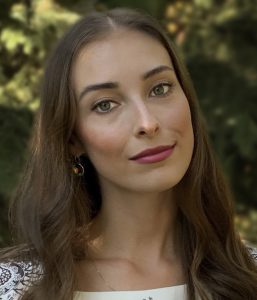 |
Ekaterina Polukhina (Russia) – Bachelor of the Faculty of Foreign Languages, South Ural State Humanitarian and Pedagogical University (Chelyabinsk), member of the groups “Deep Philosophy”
Experience of self-discovery and development of subjectness through depth philosophy (“Deep Philosophy”) (Presentation) I have been a participant in deep philosophy groups for two years. I am currently completing my training to become an online meeting facilitator and also to join DP as a board member. What is the point of participating in such an online meeting? First, it provides an opportunity to “experience” a philosophical text, to relate the ideas of the text to my own life. Second, it provides an opportunity to truly hear the other person. Thirdly, this meeting is a unique moment of revealing one’s depth. My first online meetings as a participant made a deep impression on me. What attracted me most of all was that for this kind of philosophy it is not important to have a certain amount of philosophical knowledge, the most important thing was the desire to know oneself through a philosophical text. Even before I was introduced to philosophy, the topic of true poetry had been on my mind, and poetry had surprisingly entered my life. Often after an online meeting, I felt inwardly ready to read poetry. Encountering a text is an important moment in deep philosophy. In my personal experience, the acceptance of the text has developed into a kind of contradiction. If we take the text as a “mirror,” then only what is in us can be reflected there. The task of the text is to remind us of some aspect of our lives, the task of the facilitator is to help the participants to see the depth of the text and understand its meaning for themselves, to hear their own voice and realize their own view of the world. Then I realized that contradiction should actually be our friend and not our enemy, contradiction can be the first step towards finding an answer. Deep philosophy gives me food for thought, some contradictions help me to awaken, some inspire me to find myself. At the moment I see that in some moments I manage to react more calmly to life’s difficulties (with a certain degree of stoicism), deep philosophy helps me to revive my dormant consciousness and enter the right state for understanding poetry, it helps me to learn to hear other people, one cannot help but be pleasantly surprised how similar the “voices” of our realities are sometimes, as if they come from the same center. At the same time, it requires my own personal work to figure out which of these is closer to me. Philosophy, then, is the journey to the self by any means possible, and the daily practice of the truths so extracted. |
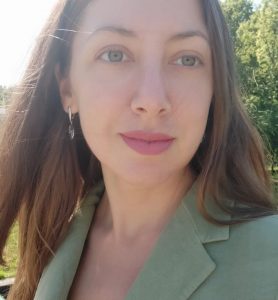 |
Lara Kurygina (Russia) – philosopher-consultant, critical thinking coach, graduate of the Philosophical Counseling course of Oscar Brenifier.
Interpretation. Work with a picture (Workshop) The art of interpretation gives freedom to our thinking. And in the dialogue our limitations are revealed, which affect our ability to see meanings, interpretations of one phenomenon. I invite you to a workshop on the interpretation of the picture, in which in a joint study we will study how you look at the world and what it says about you. The picture will be a mirror of your way of thinking! The art of interpretation – archeology of a subject (Workshop) It is possible to recognize a person from a single statement! To build his archeology means to find out through what paradigm he looks at the world, what his beliefs are, what his emotional state is, and what inner difficulties he is experiencing. At the workshop you will practice interpreting a person and get acquainted with the different tools of this art. |
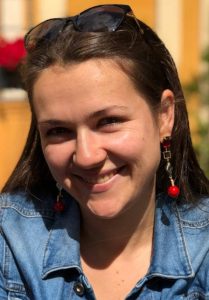 |
Maria Volodina (Russia) – philosopher practitioner, critical thinking coach. Her philosophical journey began with working with children using the critical thinking method, after which she continued her professional training and now leads personal consultations and teaches others this method. Her area of interest is to translate theory into life and look at how life is changing.
Self-consultation or how to ask yourself questions (Lecture) Among the various exercises of philosophical practice, there is one that can be practiced alone: self-consultation. This is a written form of self-test. To do this orally would not be strict enough and too approximate. The principle is the same as in the “ordinary” consultation, except that both interlocutors are the same person. Those who practice this exercise should, in turn, play the role of the “subject” and the role of the “philosopher”, like playing a game of chess with yourself. The work begins with a question that interests or worries the “subject,” then the “philosopher” asks a series of questions to deepen the problem and consider new hypotheses, with often surprising results. The main problem is to ask effective questions and to avoid complacency, which requires some preparation. The session I invite you to will be an introduction to this practice or additional training for those already initiated. |
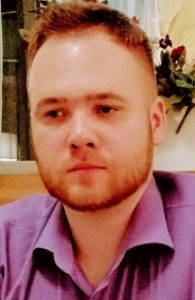 |
Vladislav Gurenko (Russia) – candidate of philosophical sciences, philosopher practitioner, lecturer of the All-Russian lecture auditorium “Intelligent environments”, an expert in the field of practical philosophy and philosophy of culture.
The conflict of speech and text in Greek philosophy (Lecture) Greek philosophy created two fundamental traditions: the tradition of speech and text. The first belongs to Socrates and Plato, and the second to Aristotle and his students. These schools declared intellectual war on each other. Traces of this philosophical strife we find in modern education, art and science. What are the main arguments behind these positions? Can this long-standing dispute be resolved? The Exercise “Diaresis” (διαρεσης) (Workshop) Diaresis is an analytical method for dividing a concept into two parts. In order to understand the essence of a particular concept, it is necessary to identify the generic concept and its specific species properties. The exercise is designed to explore the depth of the concept and then we will construct together a definition. |
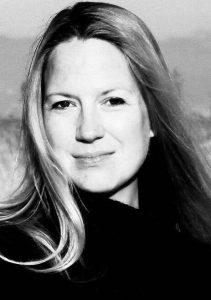 |
Julia Lazareva (Russia) – philosopher practitioner, graduate of the Faculty of Philosophy, Moscow State University M.V. Lomonosov, translator, editor of texts on philosophy and education, tutor of the Philosophical Counseling program at the Moscow Institute of Psychoanalysis.
Message to the World (Workshop) If the world had heard you for a few minutes, what would you say to him? The workshop is dedicated to the development of argumentation and critical thinking skills. We will analyze one or more messages of the participants and learn something new about ourselves. |
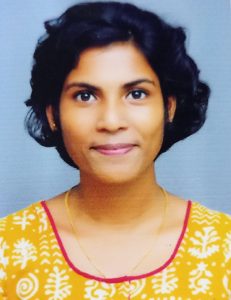 |
Kamya Rago (India) – MA Philosophy, University of Kerala; NGO Lifeworld Foundation (India); passionate about philosophy for children; planning to do PhD in P4C.
Is philosophy dead? Rejuvenating philosophy through philosophy for children A serious criticism made by my friend was that philosophy is dead and it has got no more room anywhere. Why do even some people think so? why do they perceive philosophy for children as a utopian idea? In this paper, I want to address why a part of the population views philosophy as an old-school idea and why philosophy for children is a necessity for the self-development and wisdom of children. Philosophy for children is not given the prior value in many countries including my country, India. As philosophical practitioners, we have the responsibility to ramp up the efficacy of P4C and how beneficial the children are going to be. Information is not wisdom. Wisdom is the threshold to the serene realm of self-development, self-understanding, and self-acceptance. If the children are taken to the path of wisdom through P4C, that will be the illuminating power to a better living and the acceptance of an individual as he is. As Susan T. Gardner mentioned in her theory, the practical reasoning which is essential for the betterment of self can be ensured by P4C and we have to make it fathomable to the crowd, and the educational system. Mutual acceptance and respect of opinions are crucial for healthy relations. I want to make it clear that itis possible through p4c as we are helping the little ones to mold their thinking and understanding in an actual way for a better tomorrow. |